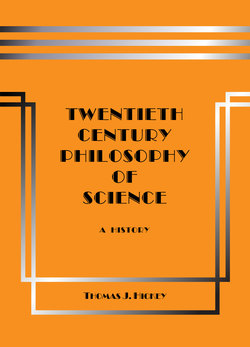Читать книгу Twentieth-Century Philosophy of Science: A History (Third Edition) - Thomas J. Hickey - Страница 18
На сайте Литреса книга снята с продажи.
2.02 Positivism
ОглавлениеHistorically positivism was a reaction against romanticism, but more recently it is has been relegated to history of philosophy. Positivism’s origins are in the eighteenth-century British empiricist philosophers including notably David Hume. But not until the late nineteenth century did positivism get its name from the French philosopher Auguste Comte, who also founded sociology.
The “neopositivists” were the last incarnation of positivism. They attempted to use the symbolic logic fabricated by Bertrand Russell and Alfred Whitehead early in the twentieth century, because they had fantasized that the Russellian truth-functional symbolic logic could serve philosophy, as mathematics has served physics. They are therefore also called “logical positivists”.
Contrary to romantics, positivists believe that all sciences including the social sciences share the same philosophy of science. They therefore reject the romantics’ dichotomy of sciences of nature and sciences of culture. And the positivists’ ideas about science originated in their reflection upon Newtonian physics.
